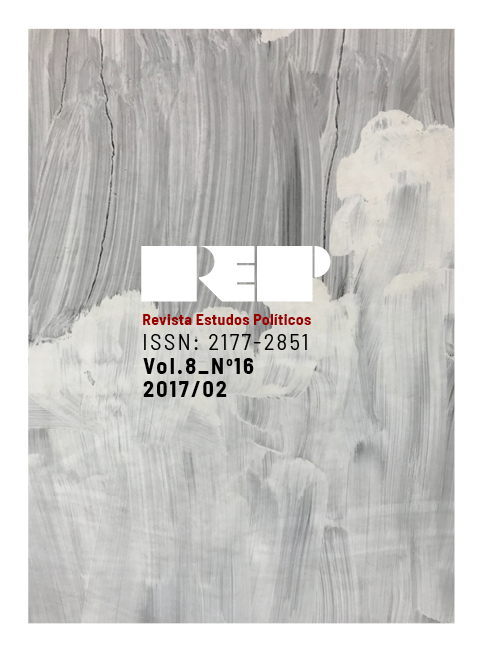Religion as a Communicative System: the reasonableness of religious contents in the public sphere
DOI:
https://doi.org/10.22409/rep.v8i16.39843Palavras-chave:
Communicative Rationality, Postsecularism, Public Reason, Religion and the State.Resumo
Recently, Jürgen Habermas has dedicated many of his works to the discussion of the relationship between religion and the public sphere, in light of democratic possibilities of mutual learning. He contends that even though religious contents can inspire motions of solidarity, constitutional and legal arrangements should reflect universal, secular reasons only. Drawing on the sociology of religion, I will demonstrate that religious narratives contribute to shape moral views and self-perceptions, impacting on the ways societies define political norms. Assessing the flaws of deontological theories, I resort to an Aristotelian view of democratic justice, whereby historical traditions and religious narratives come to inform the contents of evaluative moral discourses. Analyzing the case of South Africa, where communitarian notions of forgiveness prevailed over retributive justice, I argue that principles of public morality stem from contextual struggles, negotiations and exchange of aesthetic-cognitive meanings. With this in mind, I finalize with a formulation of the concept of religion as a communicative system, affirming the capacity of religious traditions to impart reasons that can be generally accessed and apprehended by participants in historical processes of learning.Downloads
Downloads
Publicado
Edição
Seção
Licença
Para submeter um manuscrito, os autores devem realizar o cadastro na plataforma, fornecer os dados solicitados e seguir as orientações recomendadas. Para tanto, será necessário apresentar o número da identidade de pesquisador. Para obtê-lo, é necessário realizar o cadastro na plataforma Open Researcher and Contributor ID (ORCID).
Ao submeter um manuscrito, os autores declaram sua propriedade intelectual sobre o texto e se comprometem com todas as práticas legais relativas à autoria. A submissão implica, ainda, na autorização plena, irrevogável e gratuita de sua publicação na REP, a qual se responsabiliza pela menção da autoria.
A REP tem acesso aberto e não cobra pelo acesso aos artigos.
Orientando-se pelo princípio de que tornar público e disponibilizar gratuitamente o conhecimento científico contribui para a democratização mundial do conhecimento, a REP adota a política de acesso livre e imediato ao seu conteúdo.
No mesmo sentido, a REP utiliza a licença CC-BY, Creative Commons, a qual autoriza que terceiros distribuam, remixem, adaptem e criem a partir do trabalho, inclusive para fins comerciais, desde que se reconheça e torne público o crédito da criação original.
Para mais informações, contatar a editora através do e-mail revistaestudospoliticos@gmail.com


